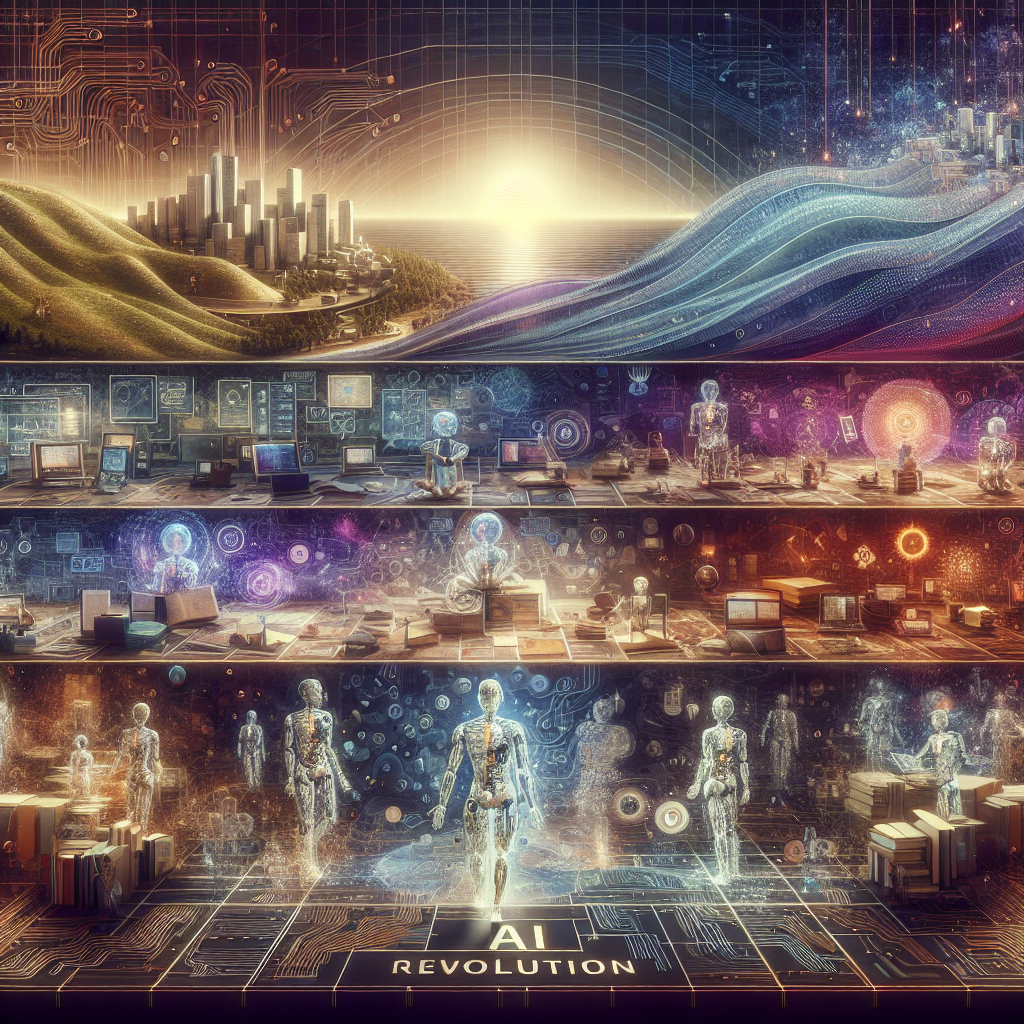Artificial Intelligence (AI) has swiftly transitioned from a specialized technological advancement to a transformative power that is reshaping industries, economies, and our everyday lives. With developments occurring at an extraordinary speed, the AI revolution is not just on the horizon; it has arrived. This article delves into the significant breakthroughs and innovations that are reshaping the AI landscape and their future implications.
Understanding AI: A Short Overview
AI encompasses a variety of technologies designed to replicate human cognitive functions, including learning, reasoning, and problem-solving. Key subfields include:
- Machine Learning (ML): Algorithms that empower computers to learn from data.
- Natural Language Processing (NLP): Technologies that enable machines to comprehend and interpret human language.
- Computer Vision: Algorithms that allow machines to analyze and process visual data.
Breakthroughs Transforming Industries
1. Healthcare
AI is revolutionizing the healthcare sector by improving diagnosis, treatment planning, and patient management. Advanced algorithms can analyze medical images with exceptional precision, often surpassing human radiologists. Companies like IBM Watson Health leverage AI to comb through extensive datasets, recommending personalized treatment plans. Additionally, AI-driven chatbots provide preliminary diagnostics and continuous health tracking, alleviating pressure on healthcare systems.
2. Autonomous Vehicles
The progression of self-driving technology has surged, with companies such as Tesla, Waymo, and major automotive manufacturers making substantial investments in AI. These vehicles use deep learning algorithms and advanced sensors to navigate roads, recognize obstacles, and make real-time decisions. As regulations evolve and technology advances, we may enter an era of safer and more efficient transportation.
3. Finance and Banking
In the finance sector, AI is enhancing various processes from fraud detection to customer service. Machine learning algorithms scrutinize historical transactions to spot patterns indicating fraudulent activities, while automated trading systems react to market fluctuations in milliseconds, optimizing profits. Furthermore, AI-powered chatbots improve customer interaction by offering instant support and personalized advice.
4. Manufacturing and Automation
Industry 4.0 heavily relies on AI to increase productivity through automation. Predictive maintenance systems anticipate equipment failures before they occur, minimizing downtime. Robotics coupled with AI enables smart factories to function with minimal human intervention, optimizing production lines and cutting costs.
Innovations That Are Changing the Game
1. Generative AI
Generative AI models, such as OpenAI’s GPT and DALL-E, signify a significant advancement in content creation. These systems can generate text, images, music, and even code, unlocking new possibilities for creativity. Designers, writers, and developers are utilizing these technologies to speed up workflows and conjure novel ideas, while ethical issues regarding content ownership and originality are becoming increasingly relevant.
2. AI in Cybersecurity
As cyber threats become increasingly complex, AI is stepping in to strengthen defenses. Machine learning algorithms analyze network traffic to detect anomalies, identify vulnerabilities, and respond to threats in real time. AI’s capacity to learn from new attack patterns helps organizations stay ahead of cybercriminals, enhancing overall security.
3. Edge AI
With the rise of Internet of Things (IoT) devices, processing data at the edge—near the point of generation—is becoming essential. Edge AI allows for real-time analytics without relying on cloud connectivity, reducing latency and enhancing data privacy. This innovation is vital for applications in healthcare, automotive, and smart home devices.
Ethical Considerations and Challenges
While the AI revolution offers tremendous advantages, it also brings forth ethical and societal challenges. Issues such as bias in AI algorithms, job displacement due to automation, and data privacy concerns warrant careful attention. Policymakers, technologists, and ethicists must work together to craft frameworks that harness AI’s potential while protecting human rights and values.
The Future of AI
Looking ahead, AI has the potential to transform virtually every domain. From personalized education systems tailored to individual learning styles to sustainable agricultural methods informed by data analysis, AI will be crucial in tackling complex global challenges.
The key to a successful AI future lies not only in technological advancements but also in responsible innovation. Balancing rapid progress with conscientious governance is vital as humanity navigates this transformative era.
Conclusion
The AI revolution is profoundly reshaping our world, with breakthroughs and innovations across various sectors paving the way for a future that intertwines humanity with intelligent machines. As we embrace the possibilities that AI brings, staying aware of its implications will ensure we harness its power responsibly, creating a future that benefits all.

